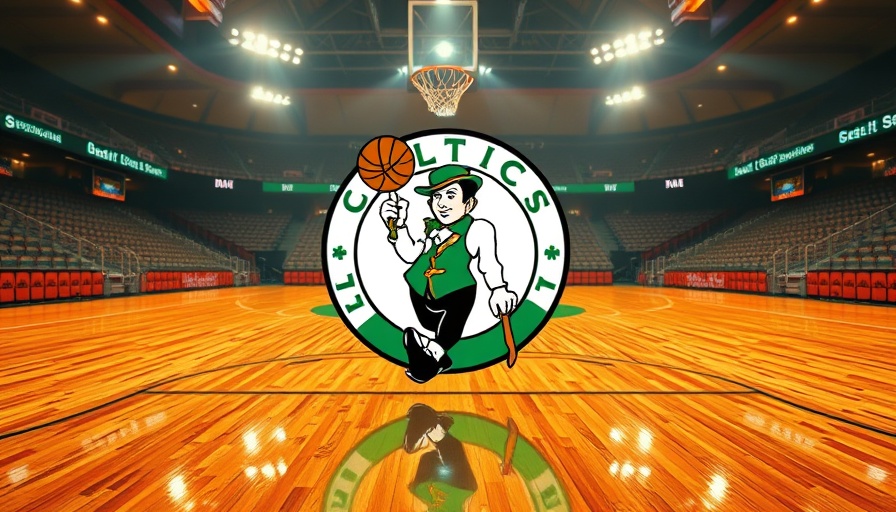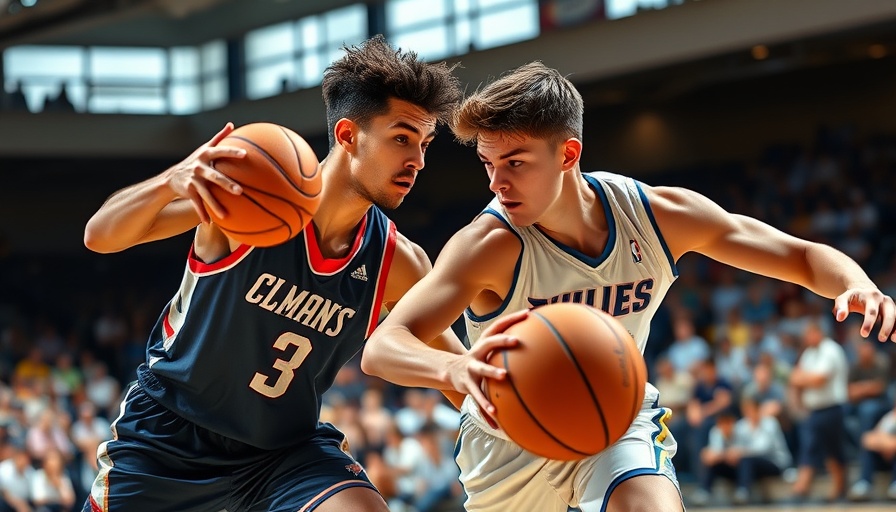
The Learning Curve: Understanding Rookies in the NBA
The NBA is often viewed through the lens of its star players, yet one crucial element rarely gets the spotlight it deserves: the officiating. As Zach Zarba highlights in his recent commentary, the dynamics between rookies and veteran players expose an intricate balance where experience often tips the scale. What seems like unfair treatment is, in reality, a rite of passage—a delicate initiation into a world that feels more like chess than checkers.
Why Do Rookies Feel Outmatched?
According to Zarba, rookies step onto the court facing a steep learning curve. Many fans might wonder why these fresh faces often struggle against seasoned players when the skill sets are seemingly equal. The answer lies in the depth of strategic understanding that veteran players possess. “It's a chess game out there,” Zarba explains, emphasizing the tactical maneuvering that defines professional basketball. Rookies might view unfavorable calls as biased, but these decisions reflect a broader understanding of the game that only experience can provide.
Positioning: The Name of the Game
Basketball is a sport built on subtle strategies. As Zarba elaborates, the positioning of players is vital. Veterans have mastered not only their physical game but also the psychological elements, knowing just how to position themselves to draw fouls or create scoring opportunities. Rookies often have not yet tuned into these intricacies, which can lead to feeling overwhelmed. “A guy sees you're leveraged and can attack your hip or shoulder. He knows you're sliding over. You're dead,” Zarba notes, revealing how easily veterans can outsmart inexperienced players.
A Natural Cycle: From Rookie to Veteran
The wisdom shared by old-timers passes down through the ranks, creating a cycle that feels harsh to newcomers. What gets perceived as favoritism is actually a cycle of learning and adaptation. Many rookies will eventually adopt the same strategies and tactics as they move from the sidelines to center stage. It’s a brutal yet inevitable transformation, as Zarba points out, noting that one day’s rookies will teach the tricks of the trade to the next wave of players.
The Role of Referees in This Equation
Zarba’s insights also challenge a common misconception that referees deliberately favor star players with calls. While it might seem that the league's prominent names benefit from preferential treatment, the reality is that these athletes simply have the ball more often. This amplified visibility results in more fouls being called against them, skewing perception. The significant presence of these players leads to a confounding intertwining of popularity and penalty—an element that fan perception often overlooks.
The Importance of Learning Through Experience
The struggle that rookies endure serves a higher purpose. Facing formidable opponents helps them grow and adapt in unprecedented ways. “It's essential to learn those nuances,” Zarba shares, explaining that grasping these tactics is crucial for gaining a competitive edge. This learning curve is echoed in various sports: from football to soccer, the mantra remains the same—experience trumps talent alone.
Conclusion: Embracing the Journey
For aspiring basketball players and fans alike, understanding the dynamics between rookies and veterans is vital—it’s all part of the game. The experiences shared by referees like Zach Zarba bring clarity to a process that is as much about psychology and strategy as it is about physicality. Recognizing this can transform how fans view the struggles and triumphs of their favorite players. As the cycle continues, the lessons learned will pave the way for future stars in the making. So the next time a rookie faces a tough call on the court, remember: it’s all part of the game.
 Add Row
Add Row  Add
Add 




Write A Comment